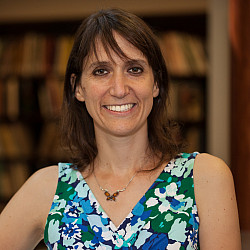What are we really censoring when we talk about banning books?
By Diane Skorina
Librarian of the College

In America, we aren’t dealing with wholesale governmental censorship that restricts what can be published or removes texts from circulation (like in apartheid-era South Africa), though what is going on in places like Florida and Tennessee is worrisome. The conversations are always about what’s OK for “the children.” In a class I teach, we talked a lot about whether children are “innocents to be protected and shielded” or “young people with many experiences that need to be guided, educated, and given access to many different stories and ideas” as they make their way towards adulthood in this complicated and ever-changing society. Those who would challenge, or censor, tend to think about children in the first way, which does a disservice to young people, who from the minute they are born are experiencing the world and the people in it.
People can sometimes recognize themselves in narratives that are being challenged and banned right now, but it is equally important that people who have never had the experiences of the characters they are reading about can gain insight into what others’ lives are like. That is what the best literature gives us: an ability to get as close as we can to understanding what it is to be someone else and to consider ideas and ways of thinking that may never have occurred to us.
And that ability is what helps us in our day-to-day lives be able to talk to each other and recognize each other as humans with real differences and different experiences and different ways of thinking. Which, I think, makes us into better adults, and allows us to listen to each other and have real empathy one another.
